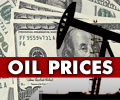Iraq’s plans to boost refining capacity seen facing financing, economy of scale hurdles

Iraq’s plans to boost its refining capacity faces several hurdles, such as a lack of economy of scale and financing, which may thwart attempts by OPEC’s second largest producer to wean itself off gasoline and gasoil imports, according to analysts.
Iraq wants to reach a throughput of around 910,000 b/d by the first quarter of 2022 and is focusing on two main projects, deputy oil minister Hamed al-Zobai told S&P Global Platts Sept. 17. The country wants to add another 70,000 b/d to the Baiji complex by year end, and 140,000 b/d in two years, boosting the facility’s refining capacity to 280,000 b/d to become once again the biggest in Iraq. The country also expects the 140,000 b/d greenfield Karbala refinery to be up and running by the first quarter of 2022, he added. However, analysts expect Karbala to come online in 2024, given pandemic-related delays.
“Iraq is likely to remain a net importer of gasoline/gasoil out to 2030 given the mismatch between product output and domestic demand,” said Ahmed Mehdi, research associate at the Oxford Institute for Energy Studies. “Attracting foreign investment is also very challenging given the long payback periods involved and the poor project economics involved.”
Iraq pumped 3.578 million b/d in August, official figures showed Sept. 10, but remained above the 3.404 million b/d it had pledged to hold production to under the OPEC+ supply accord.
Eni talks
Iraq has also various plans to build new refineries but there are few details on the specifications of the projects and financing. These include a new 70,000 b/d refinery in Qayara, near the Qayara oil field in the north, and other proposed “investment” refineries that seek to attract investors to potential locations in Fao and Zubair in southern Iraq. Oil Minister Ihsan Ismaael said in September that the ministry is in talks with Eni, the operator of Zubair field, to build a 300,000 b/d refinery in two phases.
Economies of scale are important for any refinery project that is being built nowadays, given the lack of appetite for such projects. For example, Saudi Aramco’s 400,000 b/d refinery in Jizan or Jazan, south of the country, is part of a wider plan to develop an industrial sector in that region, while in Kuwait, the 650,000 b/d al Zour refinery will be integrated with a petrochemicals facility.
“The world does not need any more refining capacity,” said Alan Gelder, vice president refining, chemicals and oil markets at Wood Mackenzie. “The question becomes who is going to build it [a new refinery in Iraq]. It is unlikely to be an oil major unless there is something else in it for them than simply the return on the project.”
Nasiriya project
It is not the first time Iraq has proposed attracting investors to refinery projects.
In 2017, the oil ministry proposed a 300,000 b/d integrated refinery to be built in Nasiriya, southeast of Baghdad, and then-oil minister Jabbar al-Luaibi said France’s Total was among companies interested in the project.
However, nothing has materialized on the Nasiriya project.
New projects are not taking off due to “the lack of interest in investment in refining industry by any financial institution or bank or investment funds to begin with, let alone in a country with some additional risk, including but not limited to security and safety as well as other infrastructure challenges that need to be addressed first,” said Iman Nasseri, managing director for the Middle East at FGE.
Oil companies like Total, which may in the past have expressed an interest in a refining project in Iraq, are divesting their downstream assets. For example, Total sold its UK refinery this year in line with its downstream strategy of focusing investment on integrated refining and petrochemicals assets.
Integrated projects
“Anything that gets built these days is going to be refining and petrochemical integrated but I think the scale and location is against the proposed Iraqi project,” said John Stewart, refining and oil products analyst with Wood Mackenzie.
Iraq is better off importing gasoline and gasoil rather than building new refineries as the pandemic hits local consumption, according to analysts.
Iraq’s gasoline and gasoil imports in the first three quarters of this year reached around 50,000 b/d and 25,000 b/d, respectively, according to FGE estimates. That compares with 65,000 b/d and 30,000 b/d of gasoline and gasoil imports, respectively, during a year-earlier period.
The disadvantages of building new refineries “are basically spending the nation’s funds — that are much needed for many other essential areas, such as gas flaring reductions, other oil and non-oil related infrastructure, etc. — on something that has little to no economic sense in general [even in a safe environment and in a growing market], let alone in a country which still is facing security risks,” said Nasseri.
Source: Platts

 Hellenic Shipping News Worldwide Hellenic Shipping News Worldwide, Online Daily Newspaper on Hellenic and International Shipping
Hellenic Shipping News Worldwide Hellenic Shipping News Worldwide, Online Daily Newspaper on Hellenic and International Shipping





















 PG-Software
PG-Software